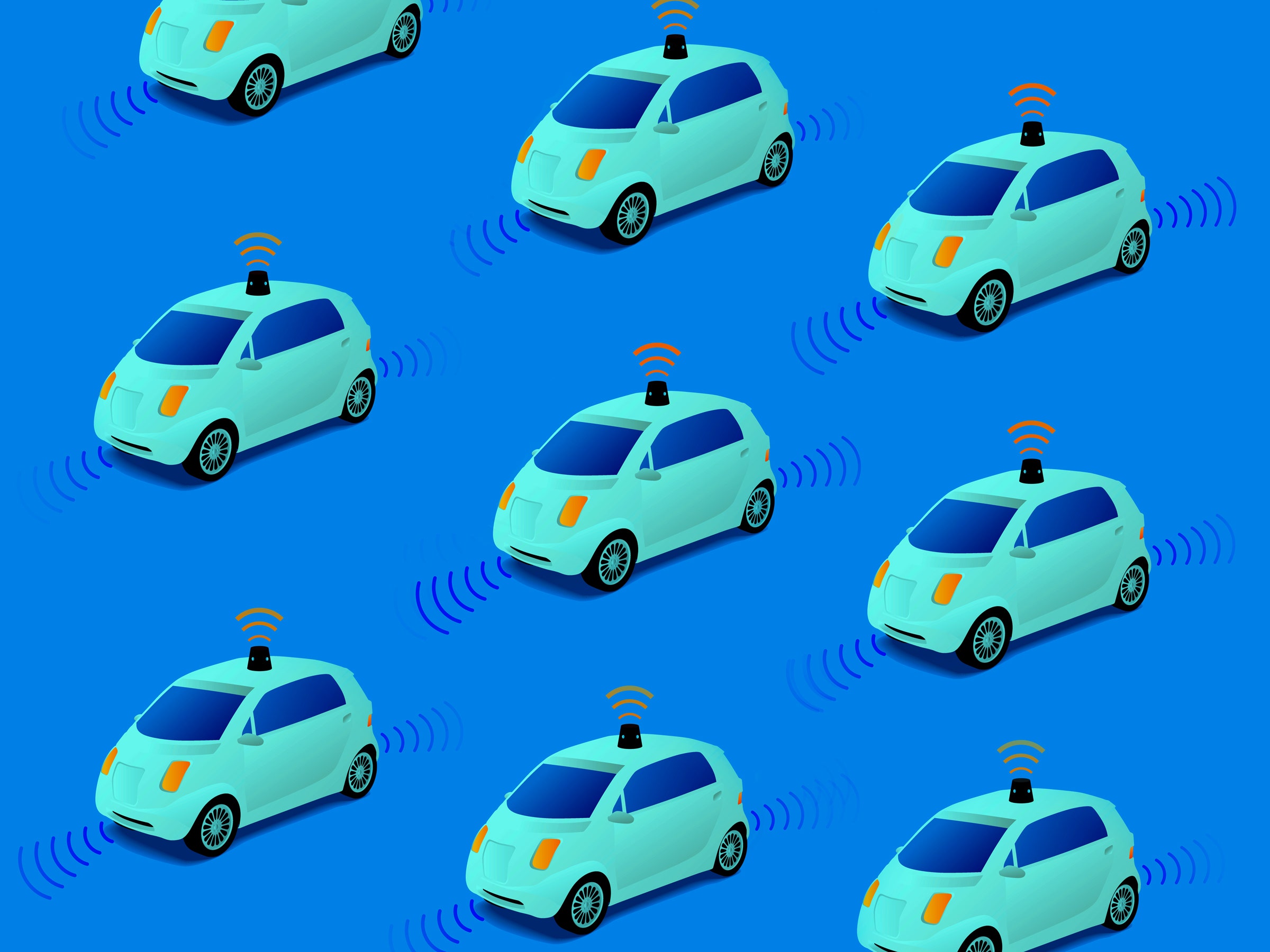Mention autonomous vehicles, and people conjure two visions of the future. The rosy picture features a world in which cars zip around by themselves, allowing commuters to while away their time checking email as they benefit from technology expected to save 600,000 lives by 2045. The dystopian view holds that all those vehicles will put some 5 million truckers, cabbies, and other drivers out of work.
The truth, of course, lies somewhere between the two extremes. But however it shakes out, the global economy will see a big boost. Like, a $7 trillion, with a t, boost. That's the word from the data crunchers at Intel and the research company Strategy Analytics. The robocar sector could add as much as $2 trillion to the US economy alone by 2050.
Granted, much of that money will go to the GMs and Ubers and Googles of the world, and the auto industry could see a seismic shift in where it generates dough. "Over time, service, application and content revenue generated by mobility-as-a-service will supplant the value of vehicle sales as core sources of shareholder value creation,” the report states. Translation: These companies will make big bank moving you and your Amazon purchases around.
So what’s the American worker to do? The report outlines adjacent boom industries that will benefit from the coming robocar revolution. Plan on sticking around through the 2030s and beyond? A few hot tips:
All those cars will generate loads and loads of data about, well, just about everything. Who you are. Where you go. What you do. How often you do it. Coupled with data gleaned from your smartphone, credit cards, and, in a particularly creepy twist, maybe even biometrics, and anyone who wants to can get a highly detailed picture of you. That kind of data is worth a lot, and the consulting company McKinsey predicts the car data industry could be worth as much as $750 million by 2030. Storing, organizing, and analyzing that data will be a big job.
The Intel report predicts businesses’ “IT intensity”—that is, how much money they spend on information technology—will almost double. Generally, IT intensity and labor intensity are inversely related: The more cloud services and predicative analytics do the work to store and use information about you and your self-driving vehicle, the fewer actual human workers a company needs. But someone need to tend to these data architecture beasts—not crunching the numbers themselves, but making sure the systems are humming along as they should.
Robocars won't need you, but they'll still need mechanics. That's true even if, as many analysts predict, fewer people are buying cars. Instead, they’ll rely on on-demand taxi services to ferry them about, which explains why the number of miles people and things travel in vehicles is expected to rise in the autonomous future. The more cars move around, the faster they’ll wear out. Those that aren't replaced will be repaired, which means lots of jobs for mechanics and others who keep cars motoring along. “This area will require tech training as well as mechanical knowledge but should be a source of new jobs for displaced drivers,” the report notes.
And then there's the TBD, the jobs that haven't even been conceived yet. The rise of the automobile helped Americans rethink how to use space—hello, suburbs!—and created new forms of employment, like office park construction workers and pizza delivery drivers. The self-driving automobile could do much of the same. "The $7 trillion figure arguably understates some of this because the really bigger stuff ... will come out of this in the longer run," says Greg Lindsay, a senior fellow at the non-profit New Cities Foundation who studies urban mobility and worked on the report. No one has yet predicated how many jobs the autonomous future will create, and that's partly because the future is so messy.
It may feel early for individuals to prepare for self-driving careers. For governments, it’s not. Mark Zuckerberg launched the latest chatter on a universal basic income; policymakers begin to weigh a robot tax; others envision a massive job retraining program to help those put out of work. Convenient that the country’s current Secretary of Transportation Elaine Chao has a background in labor issues—she served as labor secretary under President George W. Bush. A multi-trillion dollar storm could hit the world economy in less than 35 years: Her job now should be to figure out how to create more jobs then.

